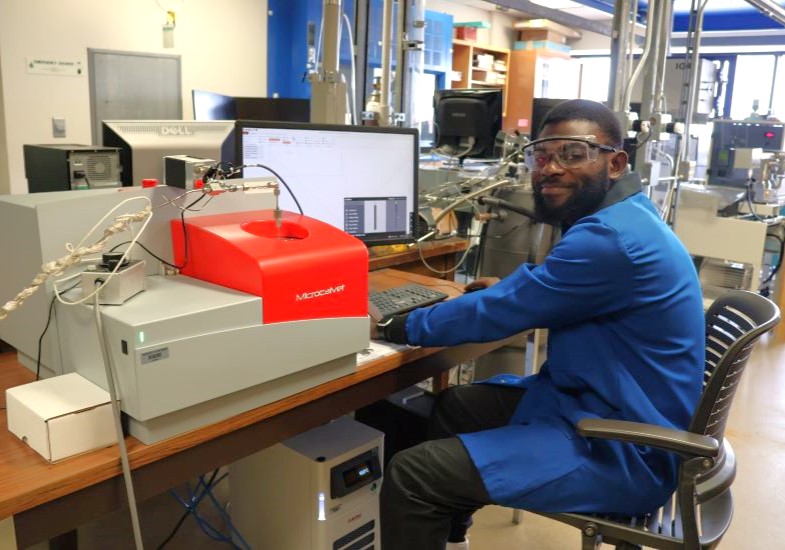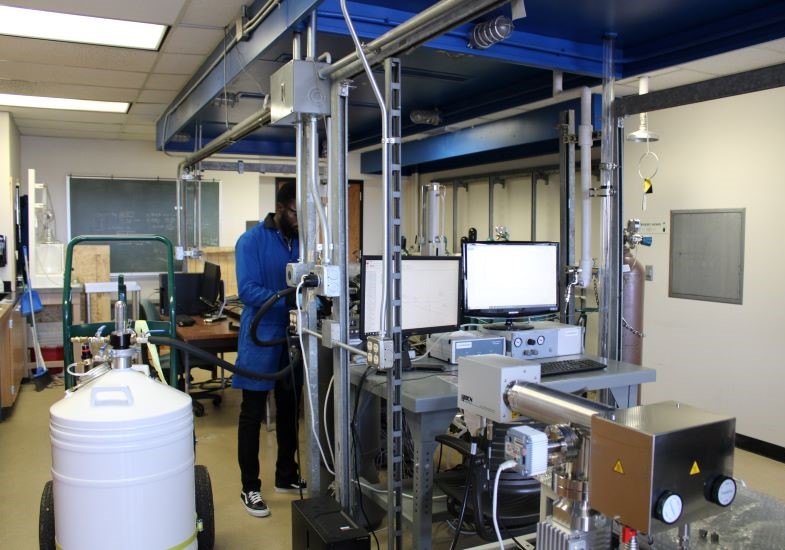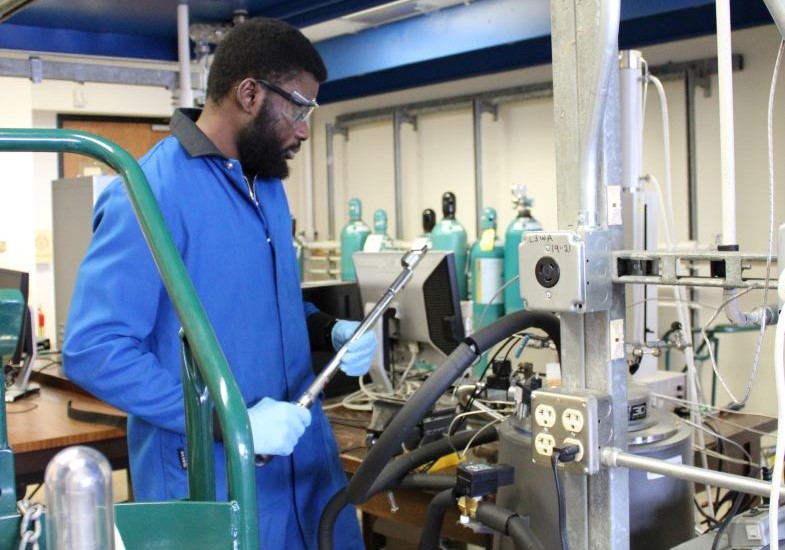Our Research Impact
Our research group has been investigating the reservoir fluid properties, including the phase transition of pure fluids and mixtures confined in nanopores, for years. These works have been supported by funded projects from the Office of Basic Energy Sciences within the Office of Science at the U.S. Department of Energy, the College of Engineering and Physical Sciences, the Office of Research and Economic Development, and the School of Energy Resources at the University of Wyoming. The three experimental setups used in our research group are complementary to each other as our published works have shown and have allowed us to tackle key challenges in ultra-tight shale rock exploration and production and storage capacity of carbon dioxide (CO2) and hydrogen (H2) in nanoporous media by providing high-resolution data on phase behavior, gas sorption, and fluid-rock interactions. The findings from previous, ongoing and future research will enable more accurate estimation of the current oil and gas in place and facilitate proper modeling to predict production performance effectively.
lab instrumentation |
|
|
|
|
|
High-Pressure Low/High-Temperature BT2.15 Differential Scanning Calorimetry (DSC) and Accessories (SETRAM INC.) |
|
|
This instrument operates within a temperature range of −196 to 200°C, with a scanning rate of 0.01 to 1°C/min and a pressure limit of 600 bar. It has a power detection limit of 2–20 µW. This system features two high-pressure Inconel 625 vessels, each with an identical volume of 3.6 cm³. To enhance operational efficiency, the BT2.15 DSC is equipped with an automatic liquid nitrogen switching system that optimizes consumption when sub-ambient temperatures are required. Additionally, a helium gas circuit prevents water condensation outside the test cells during experiments, ensuring accurate calorimetric measurements. Data acquisition and system control are managed via an evolution controller, which digitizes signals and transfers them to a connected computer.
|
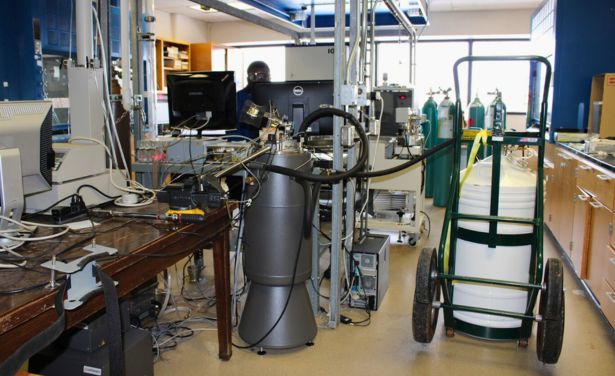 |
|
MICROCALVET DIFFERENTIAL SCANNING CALORIMETRY (DSC) AND ACCESSORIES (SETRAM INC.) |
|
|
The MicroCalvet has a 3D sensor equipped with Peltier elements and Joule effect calibration. The MicroCalvet DSC operates over a temperature range of −45 to 120 °C using a modern recirculating cooler (JULABO USA, Inc.), with a temperature accuracy of ±0.07 °C and a precision of ±0.15 °C. The programmable temperature scanning rate spans from 0.001 °C/min to 2 °C/min, allowing for flexible thermal analysis.
|
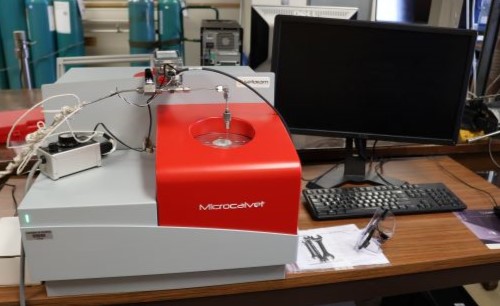 |
|
Two-Stream Dynamic Gas Sorption Intelligent Gravimetric Analyzer (IGA) equipped with Interchangeable Inlet-Pressure Dynamic Sampling Mass Spectrometer (DSMS) and Accessories (HIDEN ISOCHEMA LTD) |
|
|
Designed to study gas sorption properties under controlled conditions, the system operates within a temperature range of −80 to 500°C, with a pressure limit of 20 bar. It consists of three core modules enclosed in a cabinet: A computer module for real-time data acquisition and system control, a balance chamber housing a high-precision microbalance with a resolution of 0.0001 mg and a capacity of 200 mg, a gas handling module, which includes all tubing and computer-controlled motorized valves for precise gas flow and pressure regulation.
Additionally, our group integrates the DSMS with the IGA to enhance gas composition measurements during sorption experiments. To precisely control sample temperatures during isotherm measurements, we use a PRESTO™ dynamic temperature control system (JULABO USA, Inc.). This system operates within a temperature range of −80 to +250°C (depending on the bath fluid), with a control stability of ±0.01 to ±0.05°C, a cooling capacity of 1.2 kW, and a pumping capacity of 38 L/min. The circulating coolant, Thermal P90 Dodecamethylpentasiloxane, is also sourced from JULABO USA, Inc. |
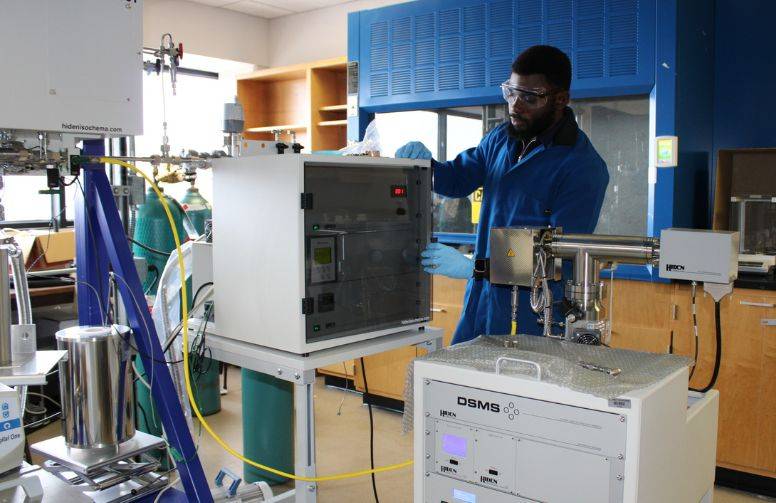 |

